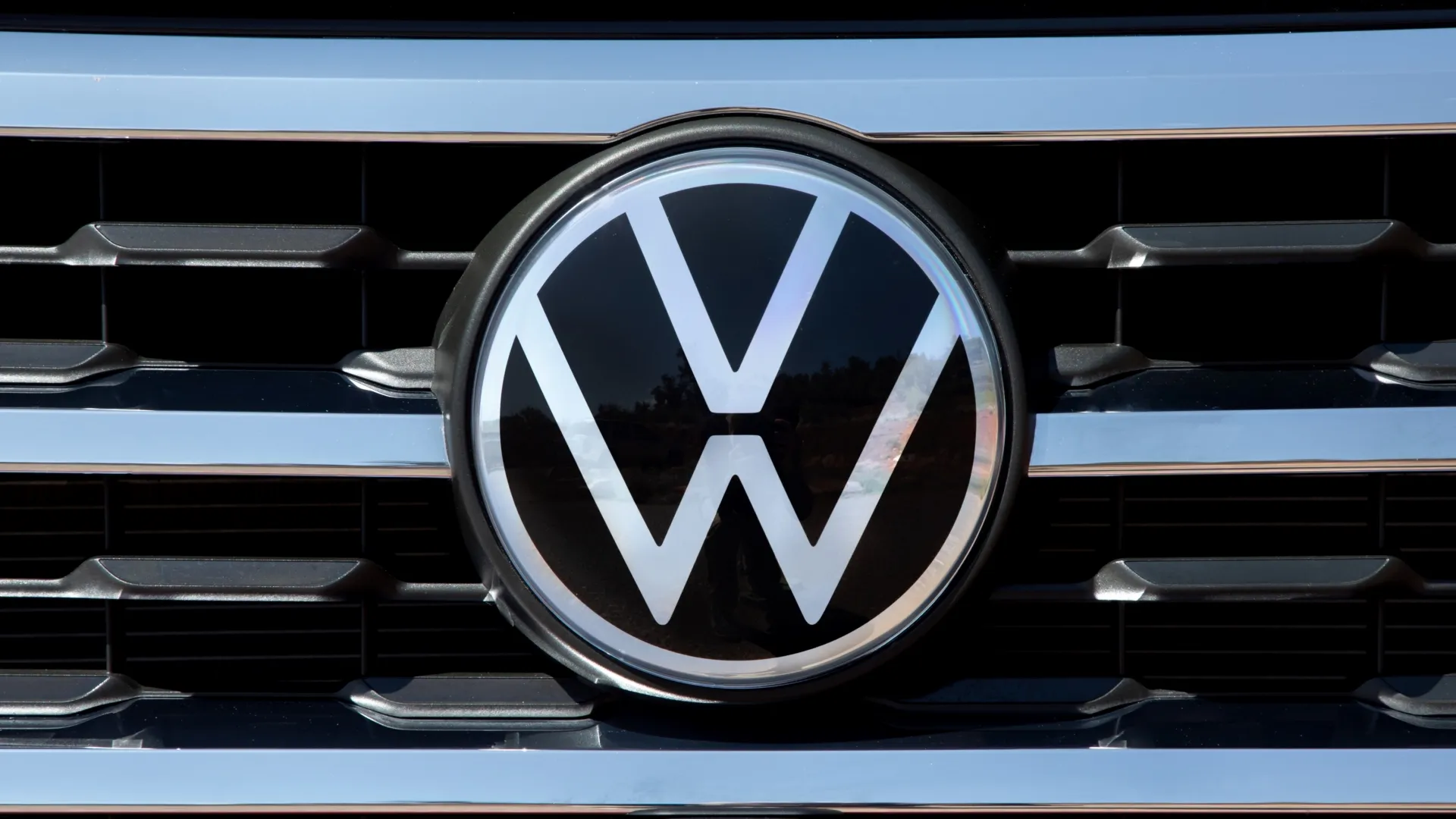
Volkswagen, a name synonymous with automotive innovation, has a rich history that dates back to its founding in 1937 in Wolfsburg, Germany. As one of the world’s leading automobile manufacturers, Volkswagen is celebrated for its iconic models, including the Golf, Passat, and the legendary Beetle. Part of the expansive Volkswagen Group, which encompasses brands like Audi and Porsche, the company is making significant strides in electric vehicle technology to align with modern sustainability demands. In this blog, we will delve into 25 fascinating facts about Volkswagen that highlight its journey, impact, and ongoing evolution in the automotive world.
Founded: Volkswagen was established on May 28, 1937, in the city of Berlin, Germany. The company was created by the German Labour Front (Deutsche Arbeitsfront) to produce a car that would be affordable for the average German family. The aim was to create a “people’s car” that could provide mobility for the masses, reflecting the socio-economic conditions of the time.
Meaning: The name “Volkswagen” translates directly to “people’s car” in German. This name encapsulates the company’s mission to produce vehicles that are accessible to a broader audience. The idea was to create a car that was not only affordable but also practical for everyday use, which resonated with the aspirations of the German populace during the pre-World War II era.
Iconic Model: The Volkswagen Beetle, officially known as the “Volkswagen Type 1,” was designed by Ferdinand Porsche in the 1930s. The design was commissioned by Adolf Hitler, who envisioned a car that could carry a family of four at a speed of 100 km/h (62 mph). The Beetle’s distinctive shape and reliability contributed to its status as an automotive icon, and it became a symbol of the 1960s counterculture movement.
Production: The Volkswagen Beetle holds the record as one of the best-selling cars in history, with over 21 million units produced between 1938 and 2003. Its production spanned several decades and multiple continents, with factories established in various countries to meet global demand. The Beetle’s enduring popularity is attributed to its unique design, affordability, and versatility, making it a favorite among drivers of all ages.
Headquarters: Volkswagen’s headquarters is located in Wolfsburg, Germany, which is also home to one of the largest automobile manufacturing plants in the world. The site covers approximately 6.5 square kilometers and employs tens of thousands of workers. The headquarters features the Volkswagen Autostadt, a visitor attraction that showcases the brand’s history, technology, and commitment to innovation.
Global Presence: Volkswagen operates a vast network of 120 production plants across 31 countries, making it one of the largest automotive manufacturers globally. This extensive presence allows Volkswagen to cater to diverse markets and adapt to regional preferences. The company’s global strategy includes localized production to reduce costs and improve supply chain efficiency.
Ownership: The Volkswagen Group owns several prestigious automotive brands, including Audi, Porsche, Lamborghini, Bentley, Bugatti, and SEAT, among others. This diverse portfolio allows Volkswagen to target different market segments, from luxury vehicles to more affordable options. The group’s scale enables significant synergies in research, development, and manufacturing across its brands.
Electric Vehicles: Volkswagen launched its ID. series of electric vehicles (EVs) to transition towards sustainable mobility. The ID.3, introduced in 2019, marked a significant step in Volkswagen’s electrification strategy, offering a fully electric hatchback with a range of up to 420 kilometers (261 miles) on a single charge. The ID. series is part of Volkswagen’s broader commitment to investing in electric mobility and reducing carbon emissions.
Sales: In 2020, Volkswagen emerged as the largest car manufacturer in Europe by sales, outperforming competitors like Renault and PSA Group. Despite challenges posed by the COVID-19 pandemic, Volkswagen managed to sell approximately 9.3 million vehicles globally. The company’s strong sales performance is supported by a diverse product lineup that appeals to various consumer preferences.
Dieselgate: In 2015, Volkswagen was embroiled in a major emissions scandal known as “Dieselgate.” The company admitted to using defeat devices in diesel engines to cheat emissions tests, affecting around 11 million vehicles worldwide. The scandal led to significant legal and financial repercussions for Volkswagen, including billions in fines and settlements, and prompted a global reevaluation of diesel technology and emissions regulations.
Stock Market: In October 2008, Volkswagen briefly became the world’s most valuable company by market capitalization, driven by a dramatic surge in its stock price. This spike was largely attributed to a short squeeze involving hedge funds that had bet against the company’s stock. At one point, Volkswagen’s market value reached around €300 billion, surpassing ExxonMobil. This event highlighted the volatility of the stock market and the significant impact that corporate actions can have on investor perceptions.
R&D Investment: Volkswagen is committed to innovation and invests heavily in research and development (R&D). In 2020, the company allocated over €13 billion to R&D efforts, focusing on electric mobility, autonomous driving, and digitalization. This investment is part of Volkswagen’s strategy to transition towards sustainable transportation solutions and to stay competitive in the rapidly evolving automotive industry.
Workforce: Volkswagen employs over 600,000 people worldwide, making it one of the largest employers in the automotive sector. The workforce is diverse, with employees from various backgrounds and expertise. Volkswagen places a strong emphasis on training and development, offering programs to enhance skills and promote career advancement within the company.
Sustainability Goals: Volkswagen aims to become carbon neutral by 2050 as part of its commitment to sustainability. This ambitious goal involves reducing CO2 emissions across all aspects of the company’s operations, including production, logistics, and vehicle usage. Volkswagen is actively working to implement sustainable practices and technologies, such as increasing the use of renewable energy in its manufacturing processes.
Heritage: The original Volkswagen Beetle was designed to be an affordable and practical vehicle for the average German citizen during the 1930s. The design specifications included a low cost, durability, and the ability to carry a family of four. This approach resonated with the public, and the Beetle became a symbol of post-war prosperity in Germany and around the world.
Motorsport: Volkswagen has a successful motorsport division that has participated in various racing competitions, including the World Rally Championship (WRC). The company has achieved significant success in motorsport, winning multiple championships and establishing a reputation for performance and engineering excellence. Volkswagen’s involvement in motorsport also serves as a testing ground for new technologies that can be applied to its production vehicles.
Safety Ratings: Many Volkswagen models consistently receive high safety ratings from organizations like Euro NCAP (European New Car Assessment Programme). These ratings are based on rigorous crash tests and evaluations of safety features. Volkswagen prioritizes safety in its vehicle design, incorporating advanced technologies such as adaptive cruise control, lane-keeping assistance, and automatic emergency braking to enhance occupant protection.
SUV Market: The Volkswagen Tiguan is one of the best-selling SUVs in Europe, known for its combination of practicality, comfort, and advanced technology. Launched in 2007, the Tiguan has gained popularity among families and individuals alike. Its spacious interior, versatile cargo space, and range of engine options make it a competitive choice in the crowded SUV market.
Production Milestone: Volkswagen produced its 150 millionth vehicle in 2018, marking a significant milestone in the company’s history. This achievement reflects Volkswagen’s growth and evolution as a global automotive manufacturer since its founding. The 150 millionth vehicle was a Volkswagen T-Roc, symbolizing the company’s commitment to producing modern and innovative vehicles that meet consumer demands.
Electric Charging: Volkswagen is investing in a comprehensive network of electric vehicle charging stations across Europe to support its transition to electric mobility. This initiative aims to alleviate range anxiety for EV owners and promote the adoption of electric vehicles. The company plans to establish thousands of charging points, including fast-charging stations, to ensure convenient access to charging infrastructure for its customers.
Heritage Models: The Volkswagen Bus, also known as the Type 2, is one of the most iconic vehicles in automotive history. Launched in 1950, it was designed as a versatile and spacious vehicle suitable for families and businesses. The Bus became a cultural symbol of the 1960s, associated with the counterculture movement and the hippie lifestyle. Its distinctive boxy shape and ability to be customized made it a favorite for road trips and adventures, solidifying its place in pop culture.
Global Sales: In 2021, Volkswagen sold approximately 4.9 million vehicles worldwide, maintaining its position as one of the leading automotive manufacturers. This figure reflects a recovery in sales following the disruptions caused by the COVID-19 pandemic. Volkswagen’s diverse portfolio, which includes various models across different segments, allows it to cater to a wide range of consumer preferences, contributing to its strong sales performance.
Cultural Impact: The Volkswagen Beetle has made numerous appearances in films and pop culture, becoming a beloved character in its own right. One of the most famous portrayals is in the Disney film “Herbie,” which features a sentient Beetle that participates in various racing adventures. The Beetle’s quirky personality and charm have endeared it to audiences around the world, making it a lasting symbol of automotive nostalgia and creativity.
Environmental Initiatives: Volkswagen has committed to reducing CO2 emissions from its production processes as part of its broader sustainability strategy. The company aims to achieve significant reductions in its environmental impact by implementing energy-efficient manufacturing techniques and utilizing renewable energy sources. These initiatives align with Volkswagen’s goal of becoming a leader in sustainable mobility and addressing the challenges posed by climate change.
Future Plans: Volkswagen plans to launch around 70 new electric models by 2028 as part of its ambitious electrification strategy. This initiative is designed to meet the growing demand for electric vehicles and to position Volkswagen as a key player in the EV market. The company is focusing on developing a diverse range of electric vehicles, including compact cars, SUVs, and luxury models, to appeal to various consumer segments and contribute to a more sustainable future.
Volkswagen FAQs
General Questions
1. What is Volkswagen’s history?
Volkswagen, meaning “People’s Car” in German, was founded in 1937 by Ferdinand Porsche. It was initially conceived as a cheap, mass-produced car for the German working class. The iconic Beetle, introduced in 1938, became a symbol of postwar Germany and a global automotive icon.
2. What are Volkswagen’s core values?
Volkswagen’s core values include:
- Innovation: Continuously developing new technologies and products.
- Quality: Striving for excellence in every aspect of their vehicles.
- Sustainability: Committing to environmentally friendly practices and products.
- Customer Satisfaction: Prioritizing the needs and desires of their customers.
Popular Models and Features
1. What is Volkswagen’s best-selling model?
The Volkswagen Golf is consistently one of the world’s best-selling cars, known for its versatility, reliability, and fuel efficiency.
2. What are some of Volkswagen’s most popular electric vehicles (EVs)?
Volkswagen has been making significant strides in the EV market with models like:
- ID.4: A mid-size SUV with a range of up to 312 miles.
- ID.3: A compact hatchback with a range of up to 273 miles.
- ID. Buzz: A retro-inspired electric van with a range of up to 258 miles.
3. What is the difference between a GTI and a GLI?
Both GTI and GLI are performance-oriented models from Volkswagen, but they are based on different platforms.
- GTI: Typically based on the Golf hatchback, known for its sharp handling and sporty design.
- GLI: Based on the Jetta sedan, offering a more comfortable and refined driving experience.
Ownership and Maintenance
1. How often should I change the oil in my Volkswagen?
The recommended oil change interval for Volkswagen vehicles varies depending on the specific model and driving conditions. Consult your owner’s manual for the exact guidelines.
2. What is Volkswagen’s warranty coverage?
Volkswagen offers a comprehensive warranty package that includes:
- Limited Warranty: Covers defects in materials and workmanship for a certain period.
- Powertrain Warranty: Covers the engine, transmission, and drive axles for a longer period.
- Corrosion Perforation Warranty: Protects against rust and corrosion.
3. Where can I find a Volkswagen dealership or service center?
Volkswagen has a vast network of dealerships and service centers worldwide. You can use their online locator to find the nearest one to you.
Safety and Technology
1. What safety features are included in Volkswagen vehicles?
Volkswagen vehicles are equipped with a range of advanced safety features, including:
- Automatic Emergency Braking: Helps prevent or mitigate collisions.
- Lane Departure Warning: Alerts the driver if they drift out of their lane.
- Blind Spot Monitoring: Detects vehicles in blind spots.
- Adaptive Cruise Control: Maintains a safe following distance from other vehicles.
2. What technology features are available in Volkswagen cars?
Volkswagen offers a variety of technology features, including:
- Infotainment Systems: Touchscreen displays with navigation, music, and smartphone connectivity.
- Digital Instrument Clusters: Customizable displays that provide key vehicle information.
- Driver Assistance Systems: Features like automatic parking and traffic jam assist.
3. Are Volkswagen vehicles compatible with Apple CarPlay and Android Auto?
Yes, most Volkswagen vehicles are compatible with Apple CarPlay and Android Auto, allowing you to connect your smartphone and access your favorite apps.








